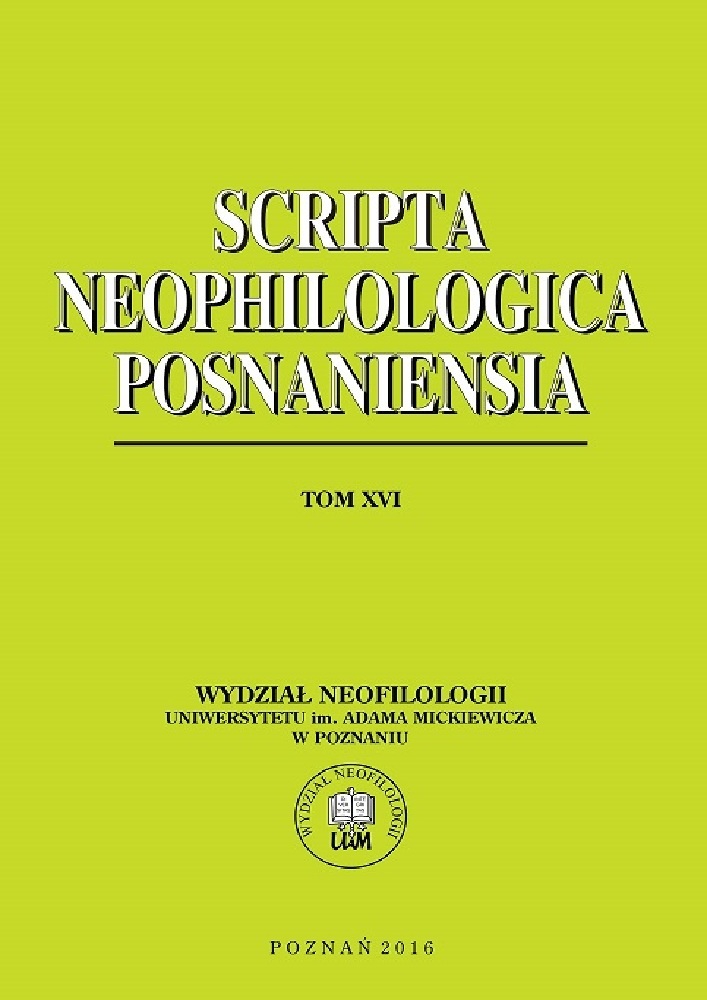Abstract
On language learner attitudes and achievement, and their relation with motivationReferences
Allwright, D. and K. Bailey. 1991. Focus on the language classroom. Cambridge: Cambridge University Press.
Bandura, A. 1992. “Self-efficacy mechanism in human agency”. American Psychologist 37. 122-147.
Benson, P. 2001. Teaching and researching autonomy in language learning. Harlow: Longman.
Bialystok, E. 1978. “A theoretical model of second language learning”. Language Learning 28. 69-83.
Brown, H.D. 1987. Principles of language learning and teaching. 2nd ed. Englewood Cliffs, N.J.: Prentice Hall Regents.
Brown, H.D. 2000. Principles of language learning and teaching. London: Longman.
Byram, M. 2003. “Foreign language education in context”. In: Bourne, J. and E. Reid (eds). World yearbook of education: language education. London: Kogan Page.
Cotterral, S. 1999. “Key variables in language learning: What do learners believe about them?”. System 27.4. 213-238.
Csikszentmihalyi, M. 1990. Flow – the psychology of optimal experience. New York: Harper and Row.
Dörnyei, Z. (ed.). 2003. Attitudes, orientations, and motivations in language learning.Malden: Blackwell Publishing.
Gardner, R.C. 1985. Social psychology and second language learning: The role of attitudes and motivation. London: Edward Arnold.
Gardner, H. and W. Lambert. 1972. Attitudes and motivation in second language learning. Rowley, Mass.: Newbury House.
Greene, J. 2003. “Models of adult communication skills acquisition. Practice and the course of performance improvement”. In: Greene, J. and B. Burleson (eds). Handbook of communication and social interaction skills. New York: Psychology Press. 51-92.
Horwitz, E. 1987. “Surveying students' beliefs about language learning”. In: Wenden, A. and Rubin, J. (eds.). Learner strategies is language learning. Englewood Cliffs, N.J.: Prentice Hall. 119-129.
Hosenfeld, C. 2003. “Evidence of emergent beliefs of a second language learner: A diary study”. In: Kalaja, P. and A. Barcelos (eds.). Beliefs about SLA: new research approaches. Dordrecht: Kluwer Academic Publishers.
Larsen-Freeman, D. and J. Long. 1991. An introduction to second language acquisition research. London: Longman.
Lightbown, P. and N. Spada. 1999. How languages are learnt. Oxford: Oxford University Press.
Little, J. and D. Singleton. 1990. “Cognitive style and learning approach”. In: Duda, R. and P. Riley (eds). Learning styles. Nancy: Presses Universitaires de Nancy. 11-19.
Mehrabian, A. 2009. Silent messages. Belmont: Wadsworth.
Moon, J. 2000. Children learning English. Oxford: Macmillan Heinemann.
Oxford, R.L. 1990. Language learning strategies: what every teacher should know. Rowley, Mass.: Newbury House.
Richards, J. and C. Lockhart. 2001. Reflective teaching in second language classrooms. Cambridge: Cambridge University Press.
Skehan, P. 1989. Individual differences in second-language learning. London: Edward Arnold.
Spolsky, B. 1965. “Attitudinal aspects of second language learning”. Language Learning 19. 271-285.
Zybert, J. 2010. “Spontaneous use of vocabulary learning strategies”. Studia Anglica Posnaniensia 46.1. 95-107.
